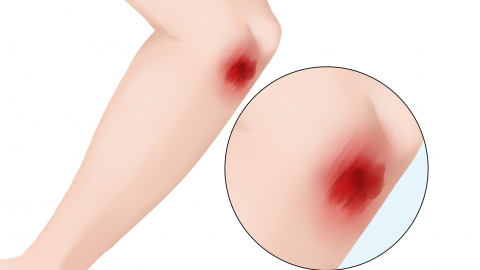What happens if you don't get a tetanus shot?
Failure to receive a tetanus shot may lead to tetanus infection, muscle rigidity and spasms, difficulty breathing or suffocation, organ dysfunction, and increased risk of death—especially when the wound is deep or contaminated. Prevention should therefore be taken seriously. If a wound is heavily contaminated and no tetanus shot has been administered, symptoms such as fatigue or muscle stiffness warrant immediate medical attention.
1. Tetanus infection: If a wound is contaminated with *Clostridium tetani*, failure to vaccinate allows the bacteria to multiply in an oxygen-poor environment and release toxins, leading to acute infectious disease. Treating established infection is far more difficult than prevention.
2. Muscle rigidity and spasms: The toxin affects the nervous system, causing abnormal contractions of muscles throughout the body. This typically begins with stiffness of the jaw muscles and lockjaw (trismus), followed by rigidity in the neck, trunk, and limbs, and may even progress to opisthotonus (severe arching of the back).

3. Difficulty breathing and suffocation: When respiratory muscles are affected by the toxin and go into spasm, breathing movements become restricted, resulting in respiratory distress. In severe cases, normal breathing may cease entirely, leading to suffocation and life-threatening consequences.
4. Organ dysfunction: Prolonged muscle spasms increase the body's oxygen consumption, potentially causing hypoxia and acidosis. They may also compress blood vessels and impair circulation, leading to ischemia and hypoxia in vital organs such as the heart and brain, resulting in functional damage.
5. Increased risk of death: Without prompt treatment, these symptoms can progressively worsen. Life-threatening complications such as suffocation and organ failure significantly raise the risk of death, particularly among elderly individuals and those with weakened immune systems.
After any injury, regardless of wound size, timely cleaning and disinfection are essential. Deep or contaminated wounds should be properly managed according to medical guidelines. Routine precautions include avoiding skin injuries, maintaining good hygiene, exercising regularly to boost immunity, and reducing the overall risk of infection.




